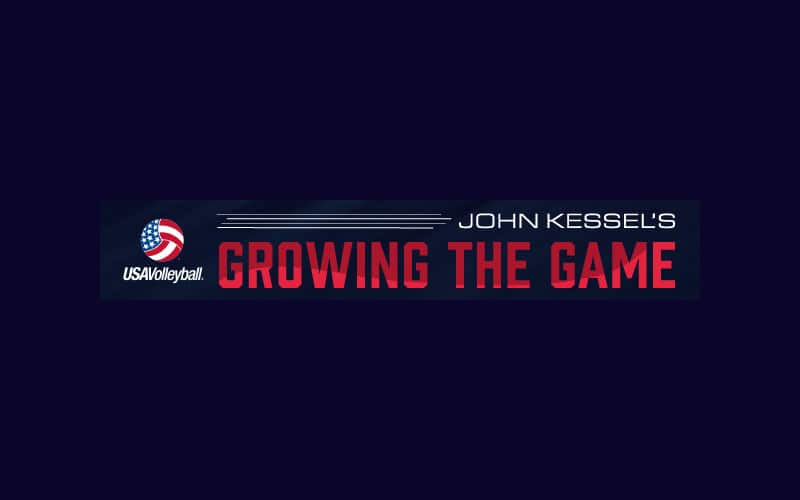
I recently was at the NCAA Finals for Women’s D1 and four words jumped out at me that I have always found of importance, but which were being repeated in session after session. To hear others using these four words in genuine ways, makes me think we have turned a corner in volleyball. Now, many coaches around the world are making the changes needed to become better teachers of the game.
One of the words was “Gamelike.” For too long coaches have said “this is gamelike” when in reality it was far from it. It reminds me of a YouTube drill I chanced upon years ago where one group was kicking volleyballs, as the other group was at the net, standing backwards. Their job was to shuffle in front of the rolling volleyball to stop it from crossing under the net, by intercepting it with their heels and/or calves. The coach kept saying “this is gamelike” as this most un-volleyball-gamelike charade went on, believing, I would have to assume, that if he said “gamelike” enough, the viewers would believe him. After all, since it was on the Internet, it must be true. At the convention however, more training examples being shown were actually gamelike. Still, too many partner examples shown for my personal motor learning science based beliefs, but definitely more gamelike training overall.
The other two words were a phrase “Growth Mindset.” Readers of my blog became aware of this important pair of words years ago, when I first shared Carol Dweck’s research. At this convention it was a strong topic of discussion and reference, and that is again great to see, for it is important in developing better learners of anything, including sport.
The power of our words, as it is the most important part of our coaching impact, that of giving feedback, is worth more study by all coaches. In our IMPACT manual I have shared for over 25 years why we need to change the words “Don’t” – to what you want, as you can’t teach a negative; “Try” as it gives the person an excuse for not doing it, as Yoda knows full well; “But” – for it shuts the door on whatever words you shared just before that word, while “and” lets the words still be heard; and “Can’t” for there is nothing you will ask them to do that is impossible, it just has not been done 10 of 10 times yet. It is likely they will start at 1 of 10…however, it can still be done.
The word was Mastery. When I was writing the first IMPACT manual, I sat in a kitchen area of Bill Neville’s home, with him and Mike Flemming, I knew the word I wanted was IMPACT, as that was the intent of this must take course,; to impact coaches in a positive way,. I was not sure what words to make the acronym from. I think it was Mike that found the word Mastery as we were going through the dictionary to find the best words for each letter. And once I heard it, that was that. Karch speaks to the USA Women’s National team training athletes about just getting a little better every day. Others spoke about “the process” – and in the end it came down to focusing every day on mastery, for that is an anchor word to all programs seeking to help athletes be the best they can be.
There are so many other negative, demotivating words and phrases in sport and in life, that we really need to cut out. There are a couple of interesting gals in the United Kingdom who focus on this area, Liz Green and Andrea Gardner. Liz calls herself a “pioneer of positive change” while Andrea told a short story in a clip called Change Your Words, Change Your World…” thus the title of this blog.
To see three 1-2 minute clips that Andrea created, their links are shown below. In all three examples, you can see how a change in wording makes such a big difference in the life of the persons making that change. Take about 5 more minutes to ponder these three, and feel free to share in the comments section any examples of wording changes you have made in your gym that made a difference in your teaching and your athletes’ learning.
